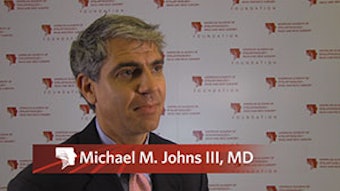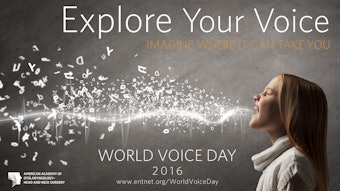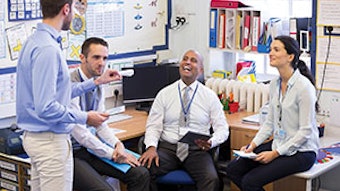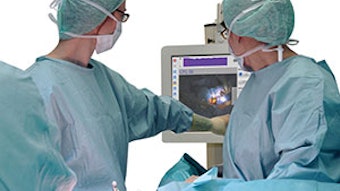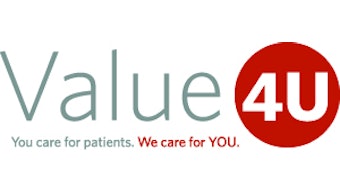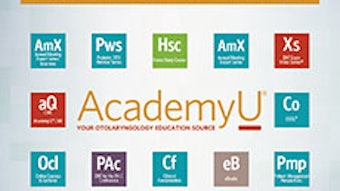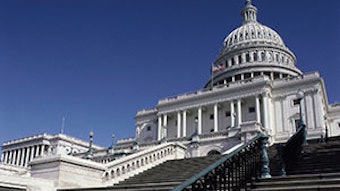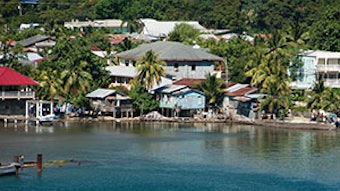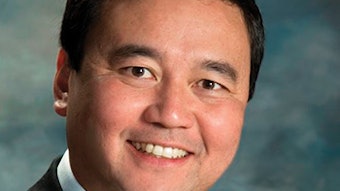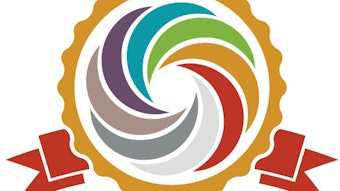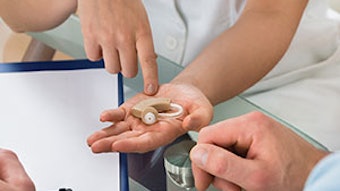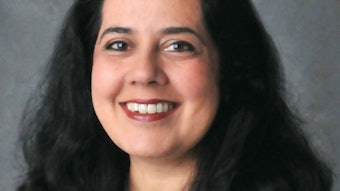Collaboration among specialties
As we prepare for World Voice Day, April 16, I am reminded how important it is to speak with an informed and thoughtful voice. As otolaryngologists we have recognized on many occasions the value of working together within our specialty and speaking with one voice when possible to maximize our influence to effect a desired goal.
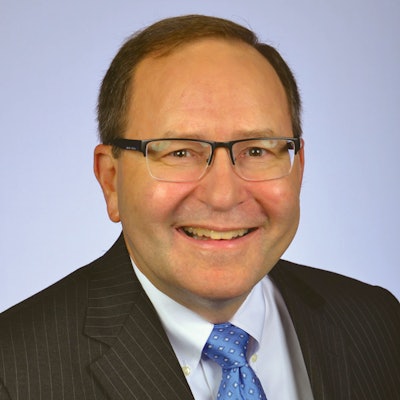 James C. Denneny III, MD
James C. Denneny III, MD
AAO-HNS/F EVP/CEO
Perhaps the most pleasant and unexpected revelation I have experienced as your EVP/CEO is the across-the-board congeniality and collegial sharing of information and experience that is commonplace in the medical association world both at the individual and organizational level. Matters that are not specialty-specific, that occur irregularly and unpredictably, and yet are critical to an organization can be the hardest to maintain expertise in. However, across the house of medicine it is likely that similar occurrences have been dealt with by others and the willingness to impart lessons learned and recommendations in these circumstances is invaluable.
Relationships developed through participation in organizations such as the Council of Medical Specialty Societies (CMSS) and Specialty Societies CEO Coalition (S2C2) allow discussion of these issues and the opportunity to compare solutions to problems and craft appropriate solutions with confidence. Probably the most valuable input over the past year has been from several specialty societies, including ophthalmology, dermatology, neurology, urology, and cardiology, regarding the decision to proceed and form our own Clinical Data Registry. Advice on consultants, vendors, and implementation at every stage of the project has been helpful and allowed us to greatly accelerate our timeline and decrease expenses related to this project. Discussions and input from these groups have allowed us to adopt variations of successful plans that most closely fit our needs.
While the relationships are pleasant, the topics themselves cover a broad spectrum of endeavor.
Our Ethics Committee, chaired by Susan D. McCammon, MD, is studying our policy on “expert witness” testimony. The research has included experiences of a number of surgical specialties, particularly neurosurgery and orthopedic surgery. The committee will present recommendations to the Board of Directors for consideration of a comprehensive policy. The experiences, both good and bad, relayed by these societies as well as a survey done through S2C2 will greatly enhance predictability and effectiveness of such recommendations.
The task force to review our international activities, chaired by Gayle E. Woodson, MD, has presented initial recommendations to the Board of Directors in the form of a comprehensive business plan addressing international meetings, education, membership, and humanitarian activities. This project was considerably aided by the American Urological Association’s comprehensive plan to promote international relations, which they shared with us, as well as discussions with other specialty societies. We are also looking forward to collaborating with the American College of Surgeons and their “Operation Giving Back.” This program has the potential to allow collaboration, sharing of resources, and expertise across surgical specialties, which will likely increase the benefit to the recipients across the spectrum of humanitarian efforts.
Workplace violence
Unfortunately, in today’s society another issue, random violence, has become much too common. Workplace violence, involving both internal and external threats, has also been on the upswing. It has become necessary to construct policies to prepare workplaces of all types, including medical practices, for the potential of such tragedy. The following two links were produced by the federal government to help prepare the population: “Active Shooter Situation” training video, from the U.S. Department of Homeland Security www.youtube.com/watch?v=oI5EoWBRYmo; and “Run! Hide! Fight!: DHS Offers Tips to Survive A Shooting,” www.youtube.com/watch?v=p4IJA5Zpzz4. If your workplace does not have a plan, you should consider creating one.
The American Urological Association has recently provided their preparedness plan to our society as well as others, and we are grateful. The plan can be found at the following link: http://bit.ly/1PiMWyU.
This and those above are but a few examples of the constructive collaboration that exists broadly among medical associations.
